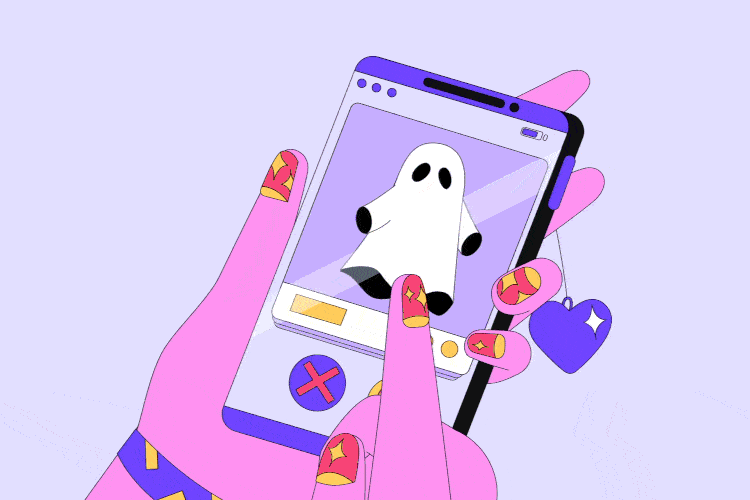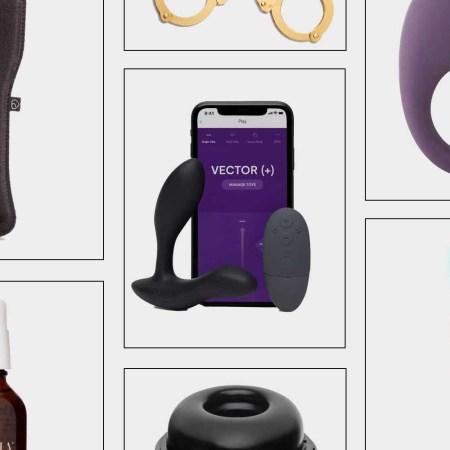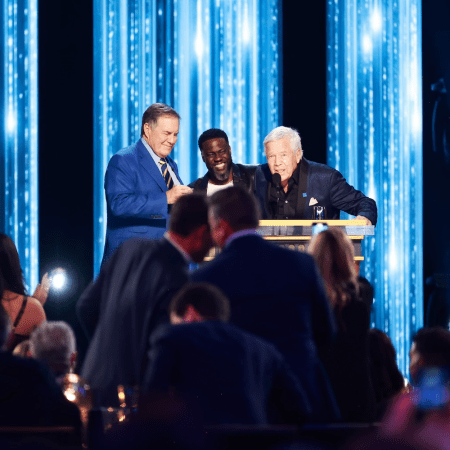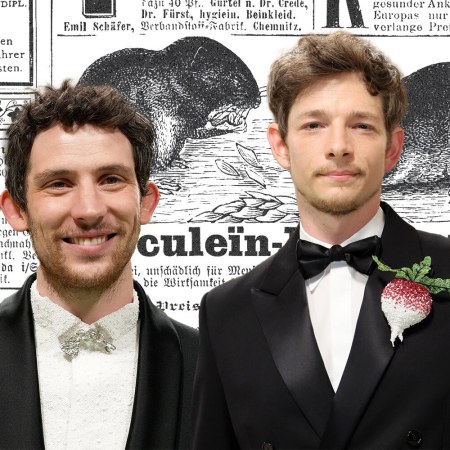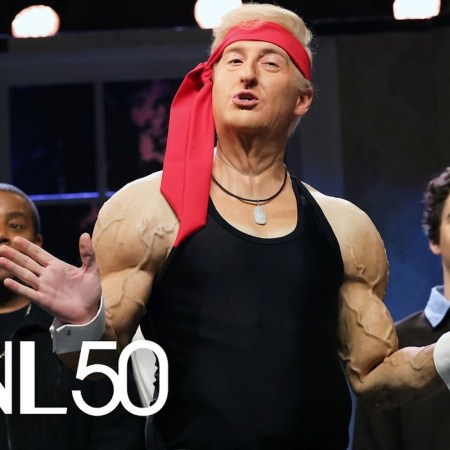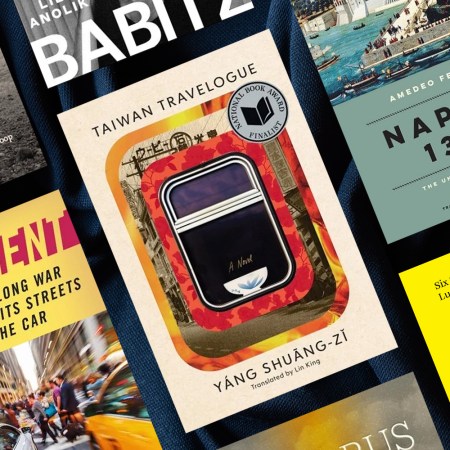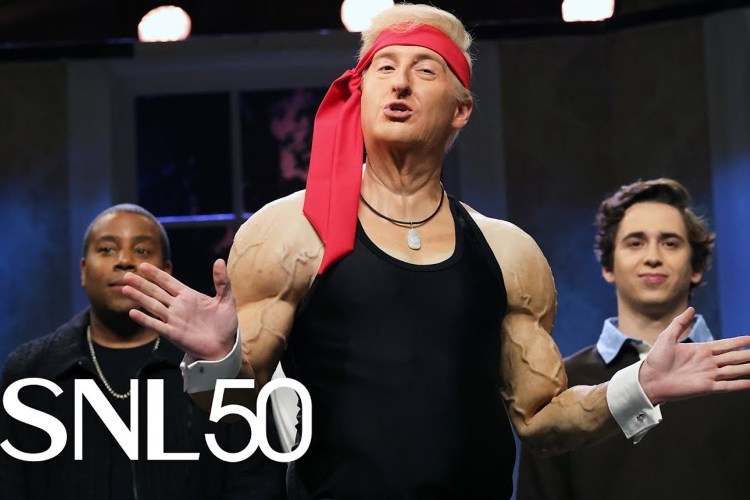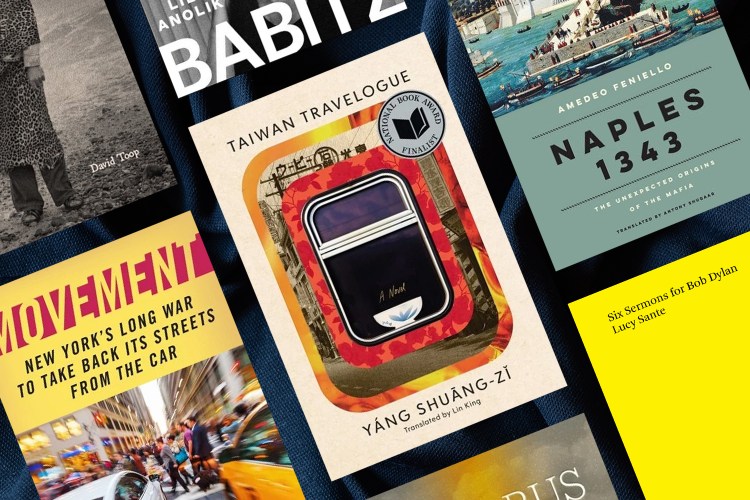Fun fact: Neither Carrie, Miranda, Samantha nor Charlotte appear in the opening scenes of the very first episode of Sex and the City. We get our first-ever Carrie Bradshaw voiceover, to be sure, but rather than narrating the romantic misadventures of the four friends that would go on to dominate six seasons of now-iconic television, Carrie instead presents the tale of a vague friend-of-a-friend we never see again, as if first testing the waters with a taste of Manhattan mythology.
Elizabeth, we’re told, is a British journalist who moves to New York, falls for the kind of charming investment banker fans of the show later learn to identify as a “Mr. Big” type, and enjoys a whirlwind two-week romance complete with apartment tours and promises of meeting the parents until her suitor suddenly stops returning her calls and she never hears from him again.
For those of us watching (and rewatching, and re-rewatching) in 2020, it’s obvious what’s happening: Elizabeth is getting ghosted.
While Carrie and company didn’t have the same language available when the show premiered in 1998 (“ghosting” first appeared on Urban Dictionary in 2006, and its current level of mainstream usage is often only traced back to around 2014, when the first round of “ghosting” explainers — and defenses — hit the internet), the events of the show’s opening scenes reveal that the kinds of “toxic dating trends” that periodically infiltrate the media cycle aren’t really anything new.
The only new things are the buzzwords we use to describe them, or, rather, the buzzwords the media keeps trying to convince us everyone else is using.
Related: 20 Things to Stop Doing on Dating Apps in 2020
From early spinoffs like “haunting” and “orbiting” to more recent additions to the ever-broadening dating lexicon like “cloaking” and “whelming,” everyone wants to coin the next ghosting — and almost no one is really succeeding.
While some new dating term or other has popped up every few months or so for the past handful of years, few seem to outlive their 15 minutes of media coverage. Each time, it’s largely a matter of same story, different buzzword. A writer will come up with a new term to refer to a pattern they’ve noticed playing out in the dating world, other click-hungry outlets will aggregate the story under sensational headlines to the effect of “X Is the Toxic New Dating Trend That’s Way Worse Than Ghosting,” and within a few weeks the new buzzword will be forgotten entirely, with the exception of a brief mention in a list of other long-since forgotten terms when the next dating buzzword has its own short-lived moment in the spotlight.
The whole thing feels very performative, fueled by some combination of fake-newsy “guess what the young people are doing now” fearmongering and clickbaity competition to invent the trendiest new buzzword that makes me want to grab the internet by the shoulders and beg it to please stop trying to make “fetch” happen.
Fortunately, it turns out I’m not alone. It seems these days people just aren’t convinced by the media’s insistence that absolutely everyone who’s anyone is talking about this dumb new thing you’ve never heard of.
“Did you guys vomit urbandictionary? No one uses like half of these,” one reader commented on a 2019 Refinery29 list of “Dating Terms You Need To Know”, which included such verbal atrocities as “zombie-ing” and “kittenfishing,” whlie another commenter added, “These terms are dumb… and people don’t even use them.”
Meanwhile, even some of these terms’ original wordsmiths themselves have called for an end to the madness. Earlier this month, Anna Iovine, the writer who first coined the term “orbiting” in a Man Repeller article back in 2018, penned an op-ed for Mashable urging everyone to “stop creating cutesy buzzwords for asshole online dating behavior.”
So if writers are over these words, readers aren’t buying them, and no one is using them, why are we still doing this?
Defining the non-relationship
Longtime online dating expert Julie Spira sees our current obsession with naming dating trends as an extension of our desire to “DTR,” or define the relationship — itself something of a dating buzzword.
Back in the day when the Facebook relationship status reigned supreme, defining the relationship meant simply clarifying to yourself and others whether you were single, in a relationship, or experiencing something more complicated with a beau. But today’s ever diversifying dating climate demands a broader dictionary of dating terms, Spira tells InsideHook.
Related: The Swipe Right Generation Turns 40
There’s a certain comfort in labels. That’s why many people cling to astrology or religion or their hometown. Being able to say “I’m a Pisces” or “I’m Jewish” or “I’m a New Yorker” gives people something approximating an identity to cling to when faced with the vast meaninglessness of all things. As online dating continues to expand the range of potential romantic entanglements beyond “single,” “relationship,” and “complicated,” then, it’s no wonder we find ourselves reaching for terms to help us navigate the swelling grey area that’s increasingly consuming the dating landscape.
As the comforting labels of traditional relationships begin to seem ever out of reach for swipe-weary daters trying to navigate this rocky terrain, we find ourselves defining various aspects of our non- or almost-relationships instead. In this current culture, says Spira, “every phase of bad behavior tends to get a label.”
Here come the brands
Unfortunately, it’s not just weary app-daters and writers coming up with these terms in an attempt to find some meaning in an increasingly bleak dating climate and/or keep the lights on with highly clickable content. It’s also brands and PR companies trying to drum up attention for dating apps.
As we’ve learned, we can’t enjoy a thing for very long before brands try to market it back to us as some grotesque caricature of itself entirely stripped of any of the irony that initially attracted us to the thing in the first place. Brands tried to capitalize on millennial ennui with suicidal Sunny D tweets and dead anthropomorphic peanuts. Why wouldn’t they also try to profit off of young peoples’ dating woes?
And that’s exactly what they’re doing. In her Mashable op-ed, Iovine wrote about a PR email she received from the dating app Happn listing predictions for the “popular dating terms” of 2020. Each more absurd than the last, the suggestions included: “Elsa’ing,” or freezing someone out; “Jekylling,” when someone seems nice but later reveals a mean streak; and “Flatlining,” when a conversation between prospective partners dies off.
Related: The New Rules of Ghosting
All obviously straw-graspy attempts to slap a stupid name absolutely no one is going to use on an ill-defined slice of a hardly universal dating experience, these attempted contributions to the crowded dating lexicon are a prime example of brands doing what they do best: making an embarrassingly tone-deaf attempt to join the conversation like a little kid interrupting the adults at the dinner table to share the new fart joke they learned at school.
“Ghosting” made sense. We rallied around it because it presented a handy, one-word point of reference to describe an increasingly common dating frustration. Subsequent attempts to recreate that magic were almost destined to fail, but in these dark dating times, who could blame us for trying?
But when dating apps try to dress up shitty online behavior and sell it back to us under cutesy names in order to draw us back to the very platforms that gave rise to those behaviors in the first place, it’s time to give up the ghost.
Whether you’re looking to get into shape, or just get out of a funk, The Charge has got you covered. Sign up for our new wellness newsletter today.
